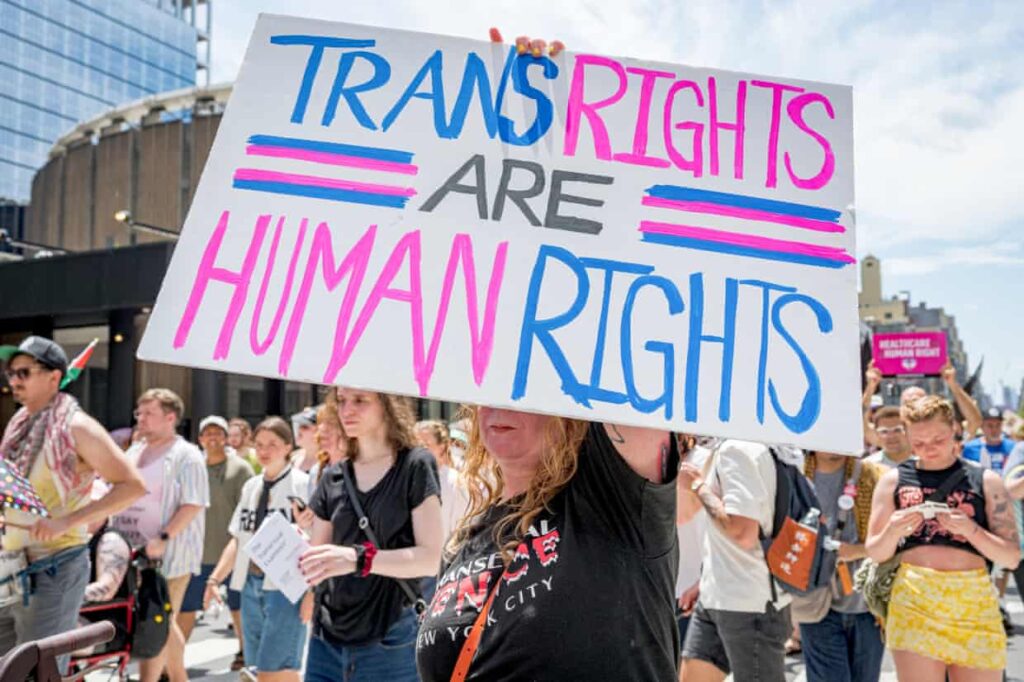
Sixteen states are suing the Trump administration to protect healthcare access for transgender youth. This lawsuit comes in response to recent efforts by the federal government, which have significantly undermined these essential medical services across the United States. Announced on September 15, 2023, the case is led by the Democratic attorneys general of California, New York, Massachusetts, Illinois, and Connecticut.
The complaint specifically targets one of President Trump’s first executive orders, issued in January, which classified puberty blockers and hormone therapy as “chemical and surgical mutilation.” The order also called for withholding federal funds from hospitals providing these treatments and suggested investigations by the US Department of Justice into healthcare providers. These gender-affirming treatments have been standard care endorsed by major US medical associations for many years.
In recent months, the atmosphere surrounding transgender healthcare has become increasingly hostile. In response to intensified threats of losing federal funding, numerous hospitals have abruptly discontinued gender-affirming care for youth. Families are now struggling to find alternatives, even in traditionally progressive states that have long supported LGBTQ+ rights. For instance, Children’s Hospital Los Angeles, a prominent institution serving transgender youth, closed its gender-affirming care center after three decades, citing funding threats.
Other notable institutions that have scaled back or ceased gender-affirming services include Phoenix Children’s Hospital in Arizona, Stanford Medicine, Denver Health, the University of Chicago, the University of Pennsylvania, and Children’s National Hospital in Washington, D.C. Some facilities have suspended surgeries for patients under 19, while others have halted hormone therapy and puberty blockers altogether.
The Department of Justice recently sent subpoenas to more than 20 doctors and clinics providing gender-affirming care, raising alarms about patient confidentiality and possible repercussions for healthcare providers. The lawsuit also challenges a memo from Brett Shumate, assistant US attorney general, instructing the civil division to prioritize investigations of entities involved in gender-affirming care.
Republican lawmakers in over 25 states have attempted to restrict healthcare access for transgender youth, although such treatments remain legal in other areas. States like California have anti-discrimination laws that explicitly protect these services. The plaintiffs in this lawsuit argue that Trump’s actions exceed federal authority, with California Attorney General Rob Bonta contesting the definition of children as individuals under 19, which impacts access to care for 18-year-olds.
Bonta emphasized the mental health implications of denying such care, stating, “Denying this care has been shown to worsen mental health outcomes, including increased rates of depression, anxiety, and suicidal ideation.” Joining California in the lawsuit are the attorneys general of Delaware, Hawaii, Maine, Maryland, Michigan, Nevada, New Jersey, New Mexico, Rhode Island, and Wisconsin, along with the District of Columbia and the governor of Pennsylvania.
The filing comes on the heels of a ruling by the US Supreme Court, which upheld Tennessee’s ban on transgender youth healthcare. This backdrop highlights the urgency of the states’ lawsuit, as advocates stress the critical importance of hormone therapy for the well-being of transgender youth.
In a recent interview, Eli, a 16-year-old transgender individual from Los Angeles who lost his healthcare, expressed the dire consequences of these actions. “Hormone therapy truly saves lives,” Eli stated. “I wish people understood they’re doing so much more harm than they could possibly imagine – that so many lives will be hurt and lost and so many people torn apart.”
The outcome of this lawsuit could have far-reaching implications for the future of transgender healthcare in the United States, as states seek to solidify protections for vulnerable youth against an increasingly restrictive federal landscape.







